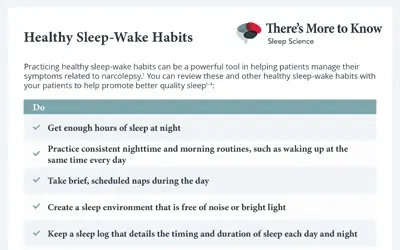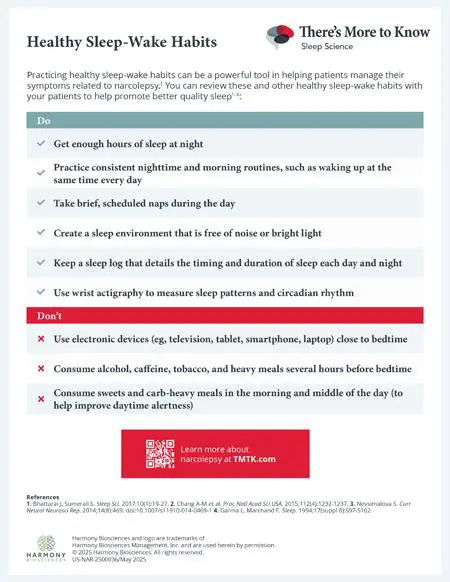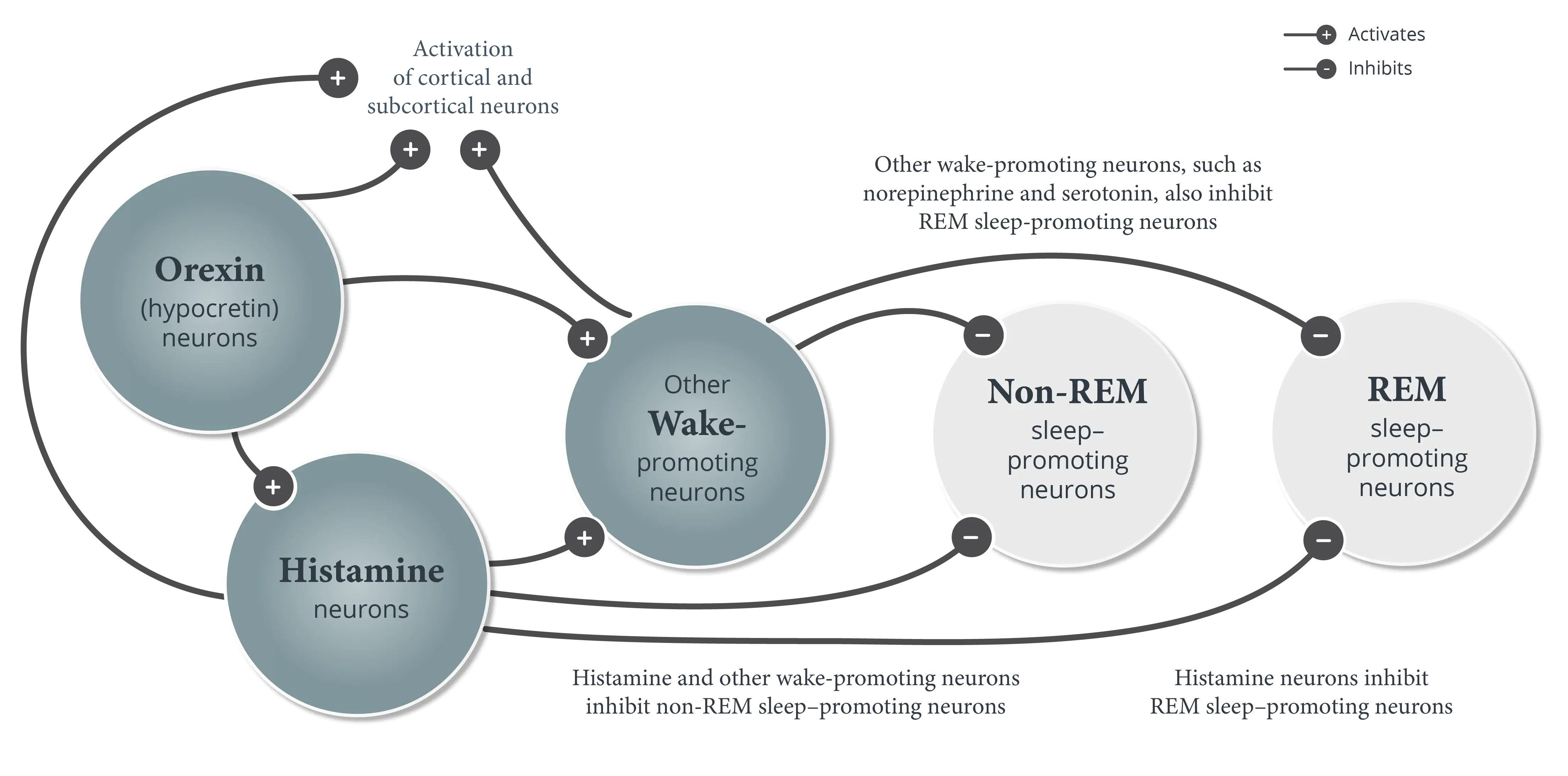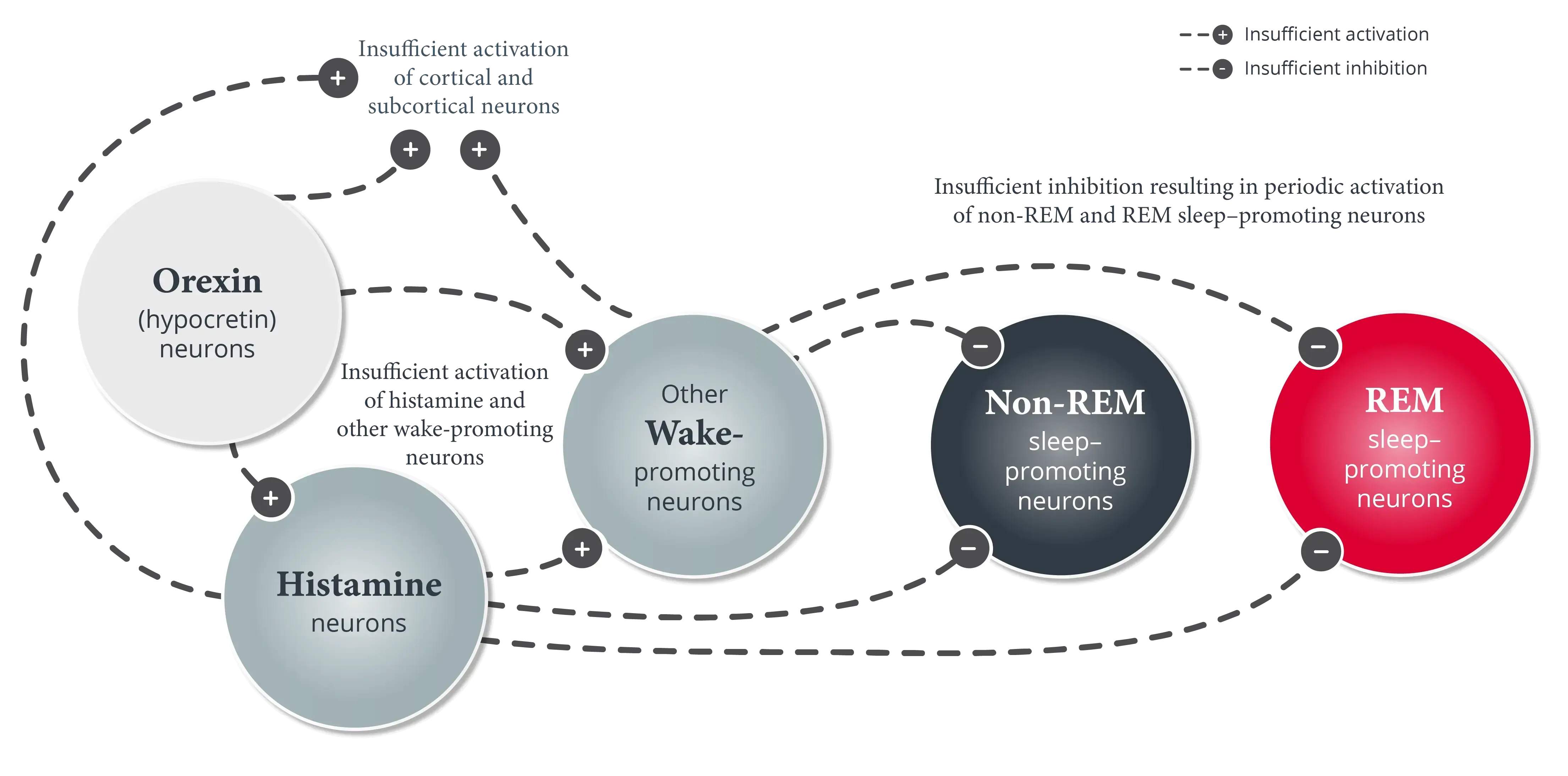Healthy Sleep-Wake Habits
Healthy Sleep-Wake Habits
Sleep-Wake Habits downloadable PDF
Download this PDF for a summary of information about healthy sleep-wake habits.
Practicing healthy sleep-wake habits can be a powerful tool in helping patients manage their symptoms related to narcolepsy.1
Encourage patients to maintain consistent habits and behaviors that help promote better quality sleep, such as1,2:
- Getting enough hours of sleep at night
- Practicing consistent nighttime and morning routines, such as waking up at the same time every day
- Taking brief, scheduled naps during the day (especially recommended for patients with narcolepsy)
- Avoiding use of electronic devices (eg, television, tablet, smartphone, laptop) close to bedtime
- Avoiding alcohol, caffeine, tobacco, and heavy meals several hours before bedtime
- Creating a sleep environment that is free of noise or bright light
Avoiding sweets and carb-heavy meals in the morning and middle of the day may also help improve alertness throughout the day.3
Having patients monitor their sleep can both help maintain healthy sleep habits and provide data that inform disease management recommendations.1 Keeping a sleep log that details the timing and duration of sleep each day and night can be effective, especially in young children.4 Wrist actigraphy is a common way for patients to measure their sleep patterns and circadian rhythm, and is more objective than patient self-assessments.1
References
- Bhattarai J, Sumerall S. Current and future treatment options for narcolepsy: a review. Sleep Sci. 2017;10(1):19-27.
- Chang A-M, Aeschback D, Duffy JF, Czeisler CA. Evening use of light-emitting eReaders negatively affects sleep, circadian timing, and next-morning alertness. Proc Natl Acad Sci USA. 2015;112(4):1232-1237.
- Garma L, Marchand F. Non-pharmacological approaches to the treatment of narcolepsy. Sleep. 1994;17(suppl 8):S97-S102.
- Nevsimalova S. The diagnosis and treatment of pediatric narcolepsy. Curr Neurol Neurosci Rep. 2014;14(8):469. doi:10.1007/s11910-014-0469-1




